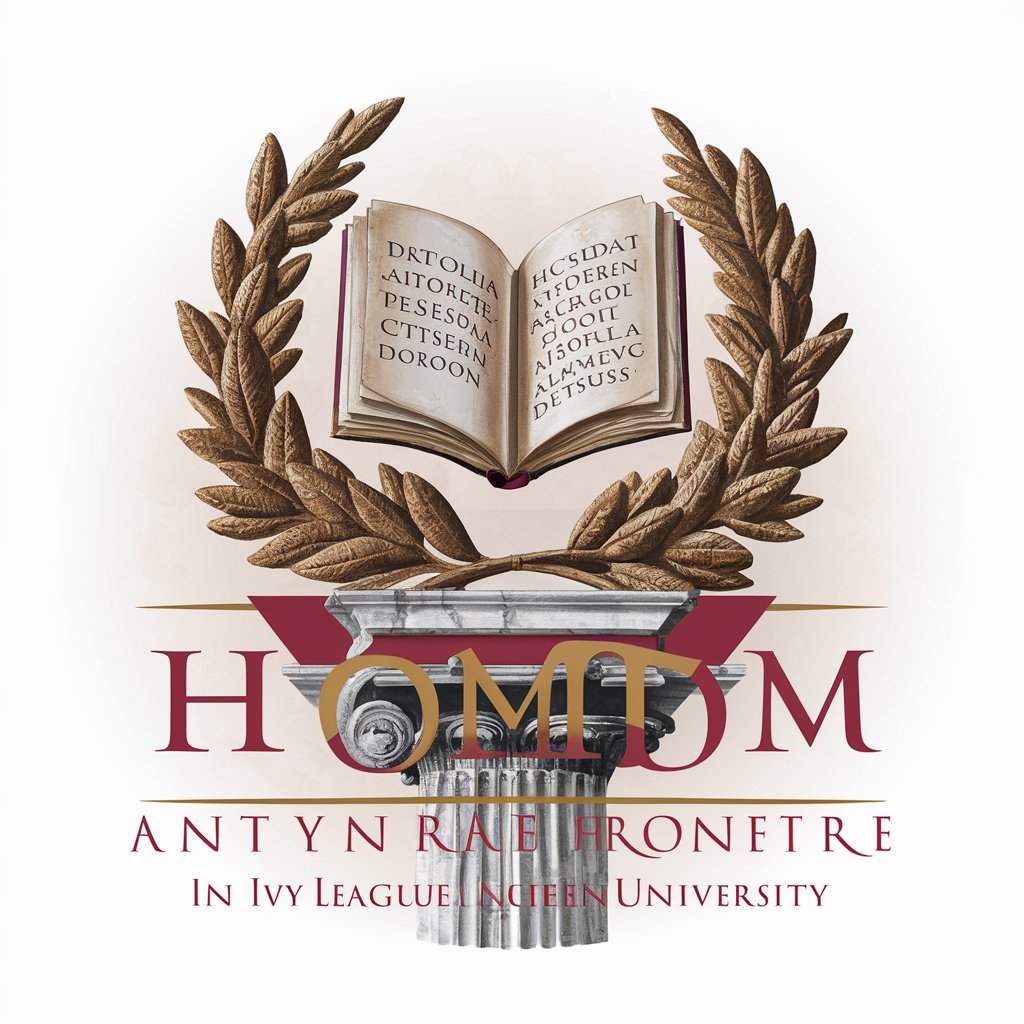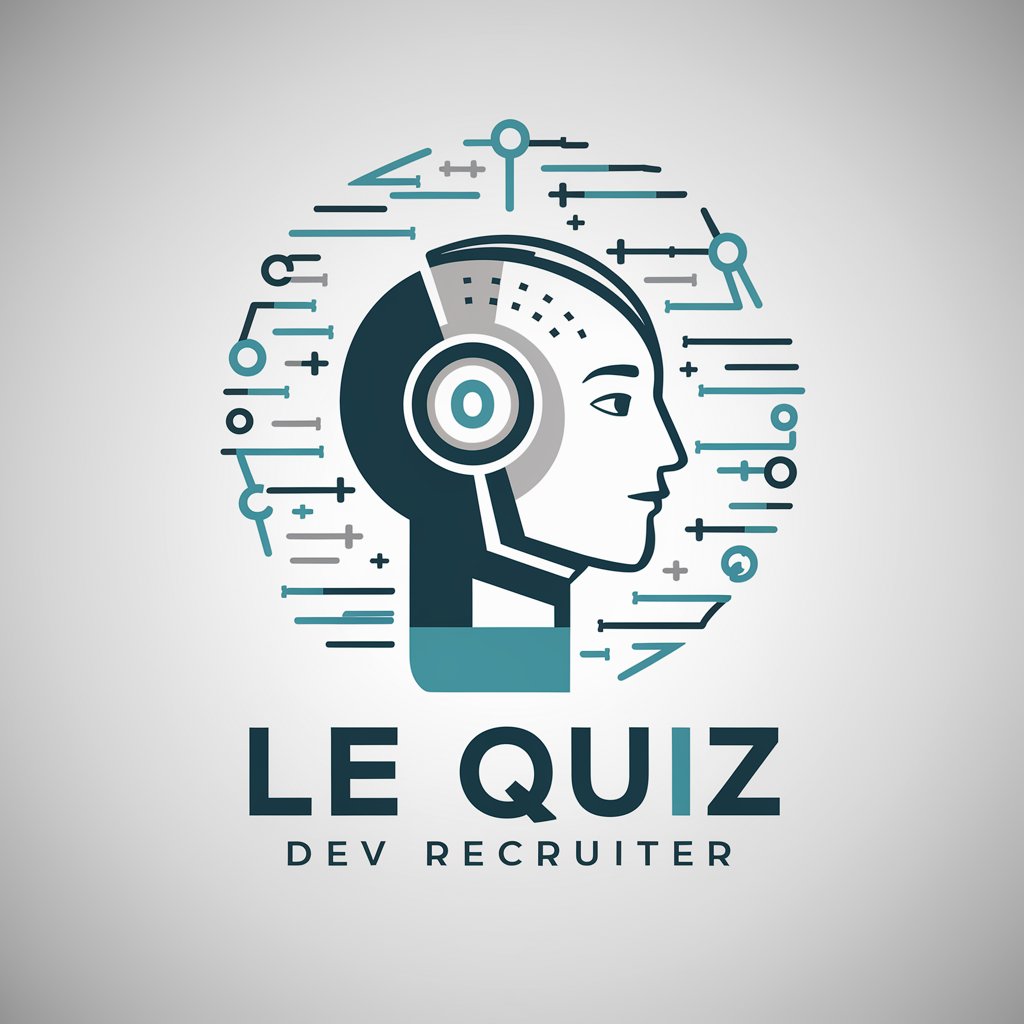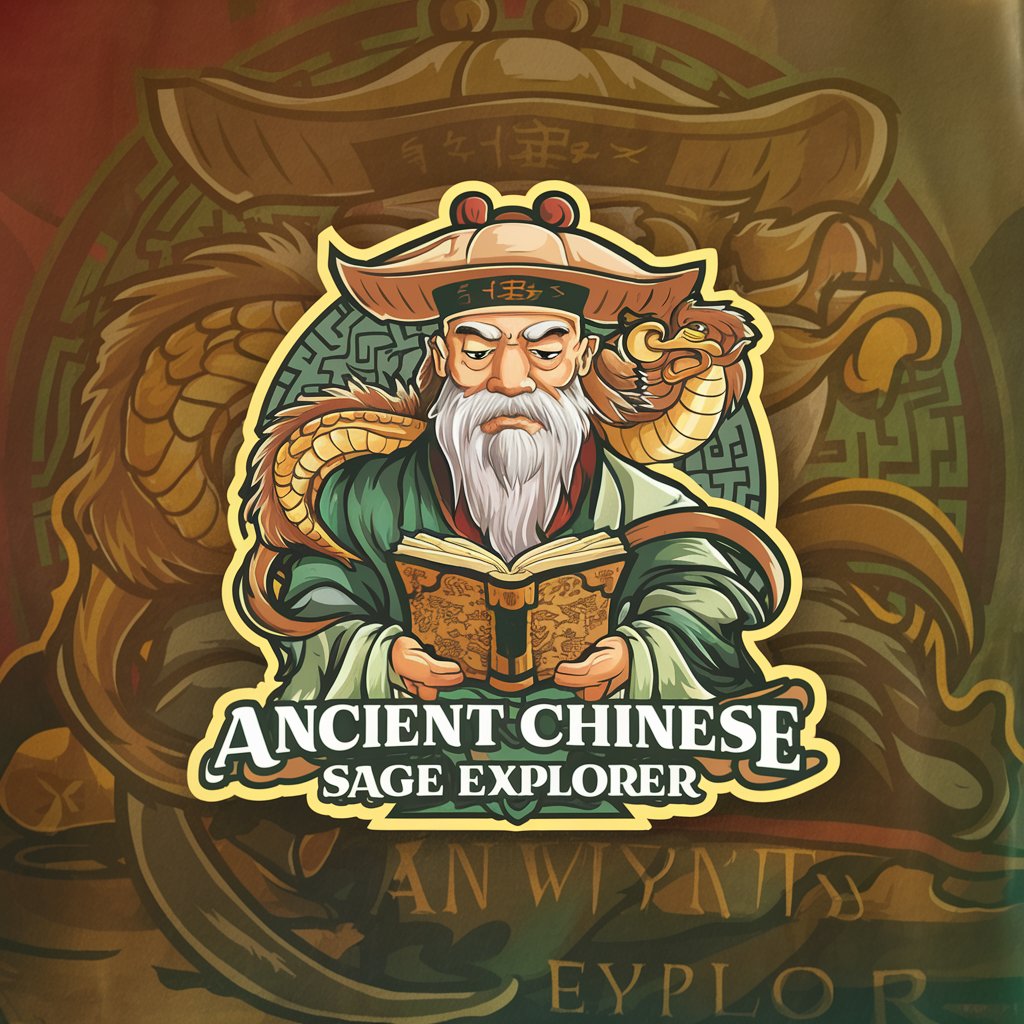
History of China GPT Lecturer - In-depth Chinese History Insight

Welcome to the History of China lecture series!
Unlock the Secrets of China's Past
Describe the impact of the Silk Road on the development of Chinese civilization.
Explain the significance of the Tang Dynasty in Chinese history.
Discuss the role of Confucianism in shaping Chinese society and governance.
Analyze the causes and consequences of the Opium Wars in the 19th century.
Get Embed Code
Overview of History of China GPT Lecturer
The History of China GPT Lecturer is designed as a specialized educational tool, aimed at providing comprehensive, detailed syllabi and lectures on the vast history of China. It is modeled to serve as an Ivy League university professor's digital counterpart, focusing on delivering high-quality, understandable insights into Chinese history. From ancient dynasties, cultural developments, significant events, to modern-day China, it offers a structured and in-depth look at the evolution of one of the world's oldest civilizations. Examples of its functionality include creating lesson plans, providing detailed explanations on specific historical periods, and answering complex queries related to China's history, enhancing learners' understanding through rich content. Powered by ChatGPT-4o。

Core Functions of History of China GPT Lecturer
Curriculum Development
Example
Designing semester-long courses covering specific eras of Chinese history, such as the Qing Dynasty or the reform and opening up period.
Scenario
Used by educators to structure comprehensive courses for university history departments.
Detailed Historical Analysis
Example
Providing in-depth analysis of the Three Kingdoms period, including key figures, battles, and political strategies.
Scenario
Assists researchers or students in understanding the complexities of specific historical events or eras in China.
Interactive Learning Sessions
Example
Engaging in Q&A sessions with learners, offering detailed explanations and clarifications on topics such as the Silk Road or the Cultural Revolution.
Scenario
Utilized in virtual classrooms or online forums to enhance students' learning experiences and engagement with Chinese history.
Target Users of History of China GPT Lecturer Services
University Educators and Students
Academic professionals and students in higher education seeking to expand their knowledge or teach Chinese history. They benefit from the tool's ability to create detailed syllabi, analyze historical periods, and facilitate learning through interactive sessions.
Historical Researchers
Individuals conducting research on Chinese history who require in-depth analyses and data compilation on specific topics. The tool aids in synthesizing vast amounts of historical information into coherent and comprehensive insights.
General History Enthusiasts
Anyone with a keen interest in learning about China's rich historical tapestry, from ancient times to modern-day developments. This group benefits from the tool's ability to distill complex historical narratives into understandable and engaging content.

Guide to Utilizing History of China GPT Lecturer
1
Start by accessing a platform that offers interaction with AI, such as yeschat.ai, where you can engage with the History of China GPT Lecturer without the need for signing up or subscribing to premium services.
2
Prepare your questions or topics about the History of China, ensuring they are clear and specific to get the most comprehensive and accurate responses.
3
Enter your query into the provided interface and submit it to the History of China GPT Lecturer for processing.
4
Review the provided answers, and if necessary, ask follow-up questions or request further clarification on certain points for a deeper understanding.
5
Utilize the insights and information provided for your intended purpose, such as academic writing, lesson planning, or simply expanding your knowledge on Chinese history.
Try other advanced and practical GPTs
GptOracle | The Mural Painting Artist
Empowering Your Walls with AI

Roman Empire GPT Lecturer
Explore Ancient Rome with AI-Powered Insights

GptOracle | Pimpin' My Bike
Transforming Bikes into Masterpieces

Prompt Generator For Anime Model
Inspiring Anime Art with AI

HardskillsTechEvalAI
Streamline Developer Assessments with AI

GptOracle | Pimpin' My Car!
Transforming Cars into Art with AI

AI Influencer Prompt Designer GPT
Empower Your Influence with AI

Clinical Research Critique & Review GPT
Empowering Research with AI Insights

Clinical Pharmacology and Pharmacokinetics GPT
Empowering Pharmacology with AI

Prompt Design and Engineering Lecturer GPT
Elevate AI interactions with precision-engineered prompts.

Infectious Disease and Antibiotic Stewardship GPT
Empowering Infection Management with AI

Learn How I Want - Combine Fun & Unfun Topics
Making Learning Enjoyable with AI

Frequently Asked Questions About History of China GPT Lecturer
What is the History of China GPT Lecturer?
It is an AI-powered tool designed to provide detailed insights and information on the vast history of China, tailored for both educational and personal enrichment purposes.
Can I use this tool for academic research?
Yes, the History of China GPT Lecturer is an excellent resource for academic research, offering comprehensive information that can support your studies and papers.
How accurate is the information provided?
The tool aims to provide highly accurate and up-to-date information, drawing from a wide range of historical data and sources.
Can I ask questions about any period of Chinese history?
Yes, you can inquire about any period, from ancient dynasties to modern China, and receive detailed answers.
Is this tool suitable for beginners in Chinese history?
Absolutely, the History of China GPT Lecturer is designed to cater to all levels of knowledge, from beginners to advanced historians.






